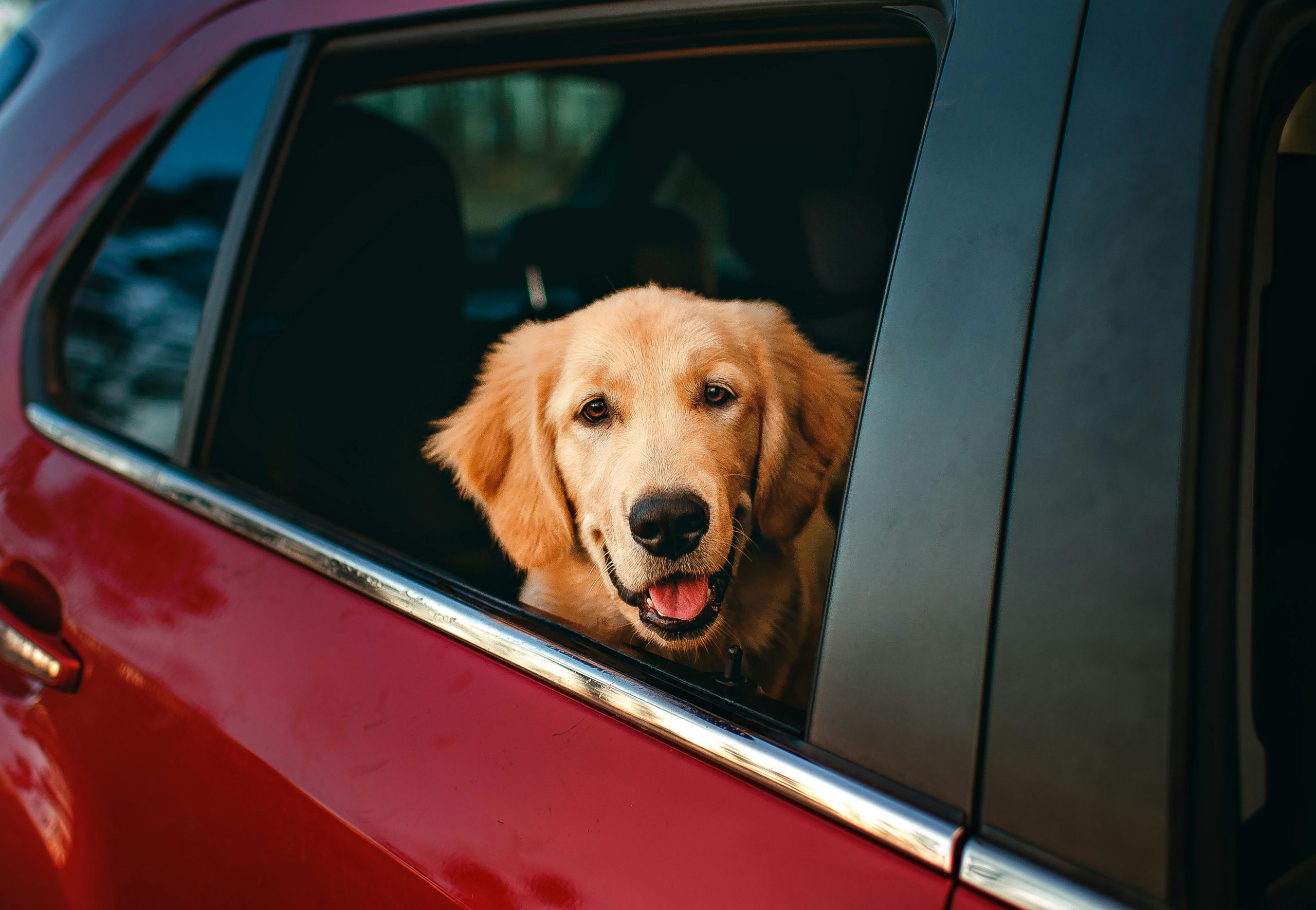More and more dog owners are traveling with dogs these days, thanks in large part to the growing number of pet-friendly accommodations and attractions available out there. Unfortunately, travel anxiety remains a major cause of concern for many dogs, particularly those who were not given multiple opportunities to travel as puppies. For many of these dogs, even seeing you take your luggage out of storage may be enough to trigger their worries.
With the right management techniques, most dogs can learn to love or, at least, accept extended excursions. Learn about the most common travel triggers here, and try these techniques to make your trip more pleasant for you and your canine companion:
1) Negative Associations
Dogs that only ever leave the house to go to the vet will eventually develop negative associations with crates, car rides, and harnesses. In addition, dogs that do not wear a collar at home and only wear it when it’s time to go to the vet may also become anxious the moment their collars are fitted.
Management tip: Use desensitization techniques by taking your dog on short, but frequent and enjoyable trips to places they love, like the park or a friend’s house. Over time, they will realize that not all car trips will end at the vet’s office and that most car rides can yield pleasant experiences. Make sure they wear their dog collars and harnesses frequently enough to build positive associations with those objects as well.
2) Car Sickness
Puppies and young dogs can often experience carsickness, which will make them wary about traveling anywhere in your car. While your dog won’t be able to tell you that they’re carsick, you should watch out for symptoms like drooling, whining, and vomiting.
Management tip: As with some humans, dogs need to be acclimatized to car rides with short trips, with each subsequent one having an increased duration. Don’t let your dog travel on a full stomach, and consider asking your vet for travel sickness medication if you need to travel before they’ve been fully acclimatized. Also look for custom dog beds and see if you can fit one in your car to make trips comfier and more bearable for your dog.
3) Lack of Familiarity
Unfamiliar environments may cause anxiety in dogs, particularly if they are not gregarious to begin with. This is something you should take note of whether you anticipate short trips or longer excursions with your dog.
Management tip: Familiar items such as your dog’s bed, blanket, or favorite toys can serve as an emotional anchor to provide your dog comfort during travel. However, over the longer term, you may have to desensitize your dog by traveling more frequently.
4) Separation Anxiety
Dogs with separation anxiety may feel stressed when their favorite human leaves the car, even when they’re left with their favorite toys or with another trusted human companion. You’ll want to address the separation anxiety first before planning any long trips with your pup.
Management tip: Fortunately, most dogs can be taught to tolerate short stretches of your absence. When you’re at home, practice leaving your dog alone for short periods and gradually increase the time you spend away from them. They will learn for themselves that they’re not in immediate danger when you’re not around.
5) Noise Sensitivity
Dogs have incredibly sensitive hearing. Loud noises from traffic, horns, a car, or other people on an airplane may trigger anxiety.
Management tip: If these noises can’t be avoided, use calming music to help mask loud sounds. You can also use calming supplements upon the recommendation of your vet or products like anxiety head wraps to help your dog feel more secure.
6) Confined Spaces
Some dogs, particularly larger breeds, may feel anxious in confined spaces like crates. The inability to move around or escape can stress out even smaller dogs, resulting in stress. This is something you should take into consideration if your dog needs to be crated for a significant amount of time during your travels.
Management tip: Whatever your dog’s size, choose a crate that has enough room for them to move and lie down comfortably. Keep your crate accessible to your dog at home and gradually acclimatize them to it by making it a safe space with treats and toys.
7) Unpredictable Movements
Sudden stops, starts, and turns in heavy traffic can make dogs feel unstable and anxious. You’ll need to do all you can to keep them stable and to calm them down when a sudden movement disorients them.
Management tip: When you’re in the car, use a dog seat belt or car harness to keep your dog secure. Make sure your dog is positioned on a flat, stable surface to reduce instability. If your dog seems to dislike stop-and-go traffic, try to plan your trips to minimize their exposure to rush hour gridlock.
8) Inadequate Exercise
For many dogs, a lack of physical activity can lead to restlessness and anxiety. This is especially true for sporting dogs, terriers, and other breeds that were developed for brisk activities. Being confined in a crate or even the back seat of a car for hours on end is not these dogs’ idea of a good time.
Management tip: If you have a dog that enjoys exercise, be sure they get plenty of it before the trip. An extended fetch session or a few runs around the block is probably going to make your exercise-loving dog more relaxed during travel.
9) Mental or Physical Health Issues
Underlying health problems can make it very difficult for some dogs to cope with the stresses of travel. Most modes of travel will require dogs to keep still within confined spaces for hours, which can be uncomfortable if they already dislike small spaces or if they have an injury that could be exacerbated by bumps in the road.
Management tip: Before your trip, consult your vet to rule out any medical conditions that might make the trip more stressful than it already is. Though the best option may be to forgo the trip until your dog has recovered, there may be times when taking the trip is absolutely essential. For these cases, your vet can recommend anxiety medications and other medical interventions to help your dog relax during the journey.
Managing Your Dog’s Travel Anxiety Through Empathy
Before you can manage your dog’s travel anxiety, you must first be able to identify the root cause of their stress. Though your vet can help you with this, your best bet is to work extra hard to exercise empathy and see things from your dog’s perspective.
Dogs are intelligent beings that have their own ways of understanding the world, so it will help you to set your human biases aside for the moment so that you can better “hear” what your dog is telling you. You’ll not only be rewarded with far less stressful trips, but you just might find that home life with your dog gets richer and more fulfilling as well.






